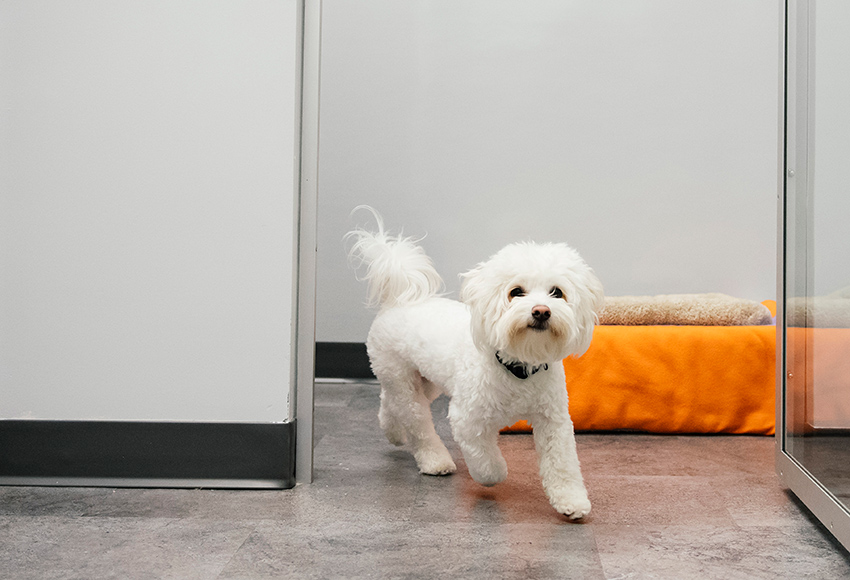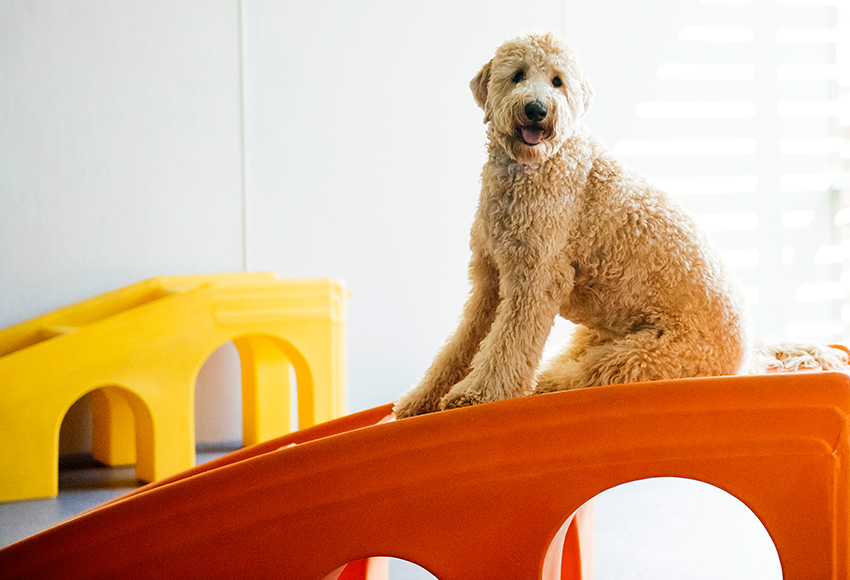March is Pet Poison Awareness Month: Keep Your Dog Safe from Hidden Dangers
March 14, 2025March is Pet Poison Awareness Month, a crucial time to educate pet parents about potential dangers lurking in their homes, yards, and communities. At Dogtopia of Fort Myers, we prioritize the health and safety of all dogs in our care, and we want to help you keep your furry friend safe from harmful substances.
Many common household items, foods, and plants can pose serious risks to dogs. Understanding these hazards and taking preventative measures can help you avoid accidental poisoning and ensure a long, healthy life for your pup.
Common Household Poisons for Dogs
Even the most well-meaning pet parent may unknowingly have toxic substances within their dog’s reach. Some of the most dangerous household items include:
1. Human Foods That Are Toxic to Dogs
While it may be tempting to share your food with your pup, some human foods can be extremely dangerous to dogs, including:
- Chocolate – Contains theobromine, which is toxic to dogs.
- Grapes and Raisins – Can cause kidney failure.
- Onions and Garlic – Damage red blood cells and lead to anemia.
- Xylitol (found in sugar-free gum and candy) – Can cause a rapid drop in blood sugar and liver failure.
- Alcohol and Caffeine – Can lead to severe poisoning and even death.
2. Household Cleaning Products
Many common cleaning agents contain chemicals that can be harmful if ingested or even inhaled by dogs. Some of the most dangerous include:
- Bleach
- Ammonia
- Laundry detergents and fabric softeners
- Disinfectant sprays and wipes
Always store cleaning products securely and keep dogs away when using harsh chemicals.
3. Medications
Both prescription and over-the-counter medications can pose serious threats to dogs, even in small amounts. Keep all medications in secure cabinets, and never give your dog human medicine unless specifically advised by a veterinarian. Common dangerous medications include:
- Pain relievers (ibuprofen, acetaminophen)
- Antidepressants
- Sleep aids
- ADHD medications
4. Toxic Plants
Several indoor and outdoor plants can be highly toxic to dogs if ingested. Some of the most common toxic plants include:
- Lilies
- Aloe Vera
- Sago Palm
- Tulips and Daffodils
- Poinsettias
If you suspect your dog has ingested a toxic plant, contact your veterinarian immediately.
Signs of Poisoning in Dogs
If your dog has been exposed to a toxic substance, they may exhibit the following symptoms:
- Vomiting or diarrhea
- Excessive drooling
- Lethargy or weakness
- Loss of coordination
- Seizures
- Difficulty breathing
Early detection is key. If you notice any of these symptoms, seek veterinary care immediately.
What to Do if Your Dog is Poisoned
If you suspect your dog has ingested something toxic, follow these steps:
- Stay calm – Panicking won’t help your dog and may delay getting the help they need.
- Remove the toxin – If possible, move the substance away from your dog to prevent further exposure.
- Check the packaging – If your dog ate something from a container, keep it for reference.
- Call your vet or a pet poison hotline – Contact your veterinarian or the ASPCA Animal Poison Control Center at (888) 426-4435 or Pet Poison Helpline at (855) 764-7661.
- Follow medical advice – Your vet may recommend bringing your dog in immediately or providing first aid at home.
Preventing Pet Poisoning in Your Home
Taking proactive steps can significantly reduce the risk of accidental poisoning. Here’s how:
- Store toxic substances out of reach – Keep cleaning supplies, medications, and harmful foods in secure cabinets.
- Be mindful of your garden – Avoid planting toxic plants and ensure fertilizers and pesticides are pet-safe.
- Keep an eye on your dog – Supervise outdoor activities and discourage scavenging behaviors.
- Use pet-friendly products – Choose non-toxic cleaning supplies and pet-safe pest control solutions.
- Train your dog – Teaching the “leave it” command can prevent them from eating harmful substances.
Keeping Your Dog Safe at Dogtopia of Fort Myers
At Dogtopia of Fort Myers, we prioritize safety and maintain a toxin-free environment where dogs can play and socialize without risk. Our trained staff members are vigilant about potential hazards, and we encourage pet parents to join us in keeping their furry family members safe from harm.
If you have any concerns about pet poisoning or need more information on keeping your pet safe, we recommend reaching out to your veterinarian or contacting a pet poison control center for expert guidance.






